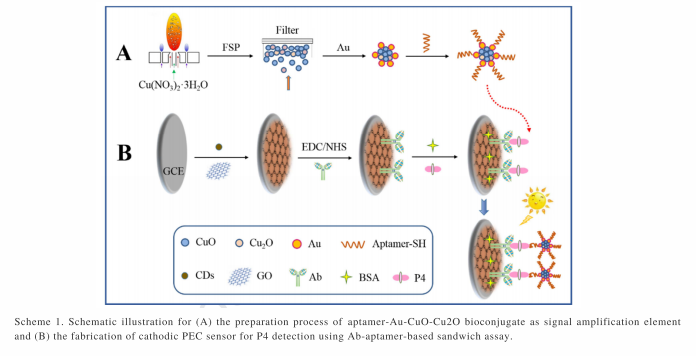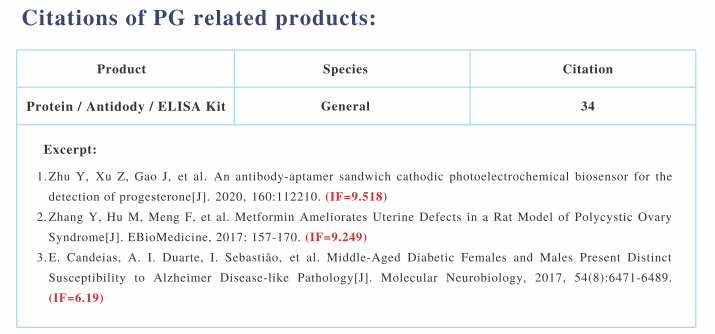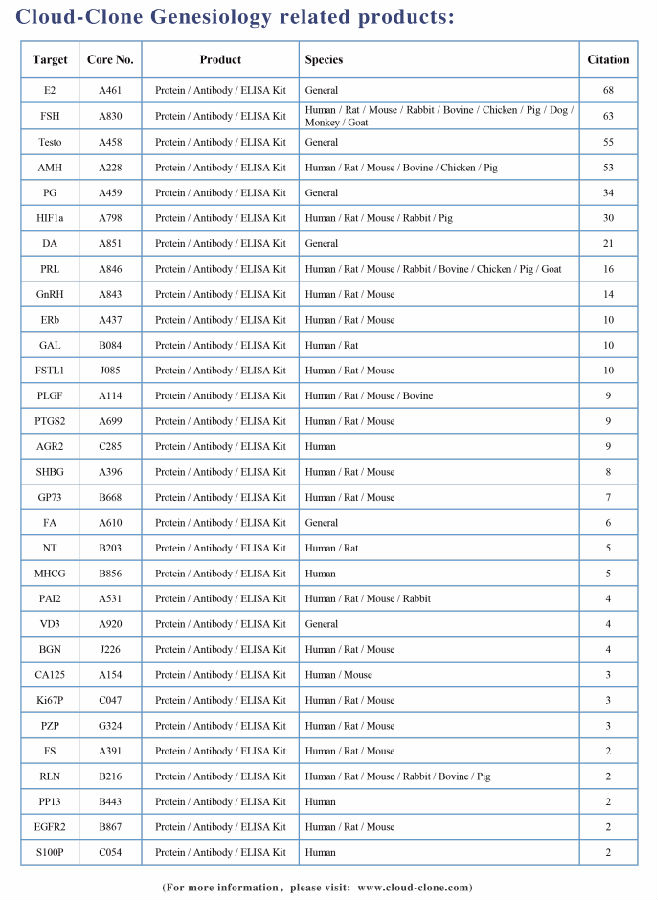An antibody-aptamer sandwich cathodic photoelectrochemical biosensor for the detection of progesterone
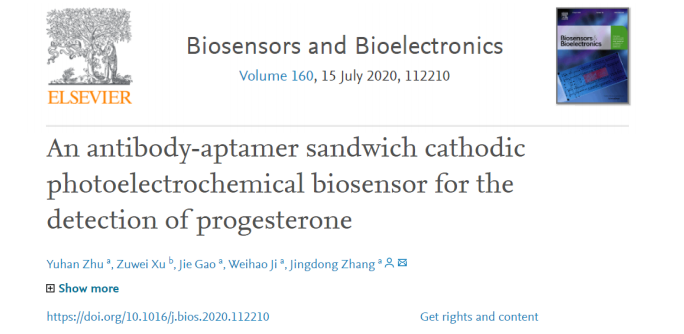
On February 15, 2020, professor Jingdong Zhang from key laboratory of material chemistry for energy conversion and storage of Huazhong University of Science and Technology published a paper titled An antibody-aptamer sandwich cathodic photoelectrochemical biosensor for the detection of progesterone on Biosensors and Bioelectronics.
The Polyclonal Antibody (PG, PAA459Ge01) of Cloud-Clone brand was chosed in this article, we are so proud for supporting the reaserchers.
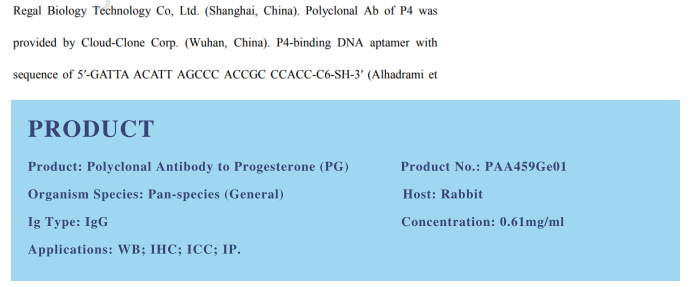
The progesterone (P4) level in body fluids can act as an indicator for early pregnancy diagnosis and offers insight into mammalian somatic function. In this work, we designed an antibody-aptamer based sandwich assay as a cathodic photoelectrochemical (PEC) biosensor for P4 detection. The composites of carbon dots and graphene oxide (CDs-GO) with favorable cathodic photocurrent response were used as photoactive materials on which the antibody (Ab) of P4 was immobilized. Meanwhile, high affinity truncated P4 aptamer was immobilized on Au–CuO–Cu2O to act as a bioconjugate. When P4 was present, the aptamer-Au-CuO-Cu2O bioconjugate could amplify the cathodic photocurrent of CDs-GO modified electrode through Ab-P4-aptamer interactions. Under optimum conditions, the cathodic photocurrent of the constructed PEC biosensor was found to increase linearly with P4 in a wide concentration range from 0.5 nM to 180 nM, with a low detection limit (3S / N) of 0.17 nΜ. The proposed cathodic PEC sensing platform demonstrated high selectivity, satisfying reproducibility, good stability. The sensor was successfully applied in the determination of P4 in human serum samples.
